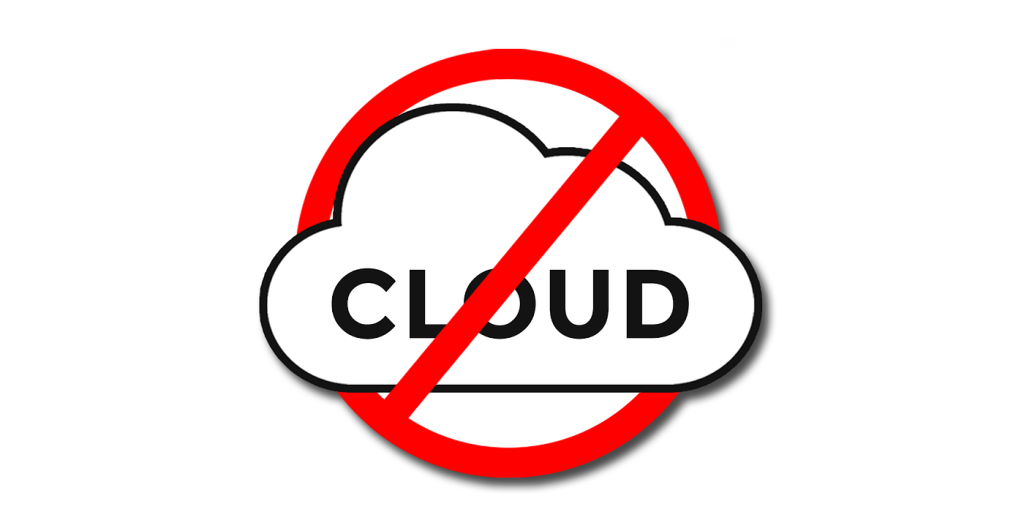Written By:
Scott McAuley
Scott is the IT Director of Texas Management Group, and has been in the IT industry for 25 years.
In a world where cloud solutions seem to dominate, choosing a non-cloud service provider might feel unconventional.
Yet, there are compelling reasons why businesses still opt for these providers over cloud-based alternatives. So, what exactly makes a non-cloud service provider worth considering?
For some, the appeal lies in greater control, data security, and reduced dependency on internet connectivity. Non-cloud options can offer distinct advantages that fit specific operational needs and compliance requirements.
Curious about what makes non-cloud solutions so valuable? Let’s uncover five powerful advantages that might make them the perfect fit for your business.
Ready to take a closer look?
Key Takeaways
- Enhanced data privacy and control make non-cloud providers ideal for businesses handling sensitive information, offering secure on-site data management.
- Non-cloud solutions offer high customizability, enabling companies to tailor hardware and software to fit specific operational and security needs.
- Reliable performance without internet dependency ensures continuous access to critical systems, making non-cloud options valuable in areas with limited connectivity.
- Non-cloud providers facilitate regulatory compliance, simplifying adherence to industry standards, particularly in sectors with strict data privacy and security requirements.
- Higher initial setup costs and limited scalability are key challenges with non-cloud solutions, but they provide unmatched data control and security.
Table of Contents
What is a Non-Cloud Service Provider?

A Non-Cloud Service Provider is an organization that delivers IT resources, services, or infrastructure without utilizing cloud-based systems.
These providers rely on traditional, often on-premises technology solutions to support their clients’ needs, offering alternatives to cloud-based models that are increasingly popular but not always suitable for every business.
Non-Cloud Service Provider vs. Cloud Service Provider
| Feature | Non-Cloud Service Provider | Cloud Service Provider |
|---|---|---|
| Infrastructure | Typically relies on dedicated, on-premises hardware and systems. | Utilizes shared, internet-based infrastructure across multiple clients. |
| Data Control | Full control over data, managed on-premises or within a private environment. | Data is stored off-site in remote, shared locations, managed by the provider. |
| Scalability | Limited by physical resources, requiring hardware upgrades for expansion. | Highly scalable, with the ability to increase or decrease resources quickly based on demand. |
| Cost Structure | High upfront costs for equipment, setup, and maintenance, with fixed long-term expenses. | Flexible, pay-as-you-go or subscription-based, allowing for lower initial investment. |
| Data Security and Compliance | Enhanced control for compliance; suitable for industries with strict data privacy needs. | Offers security measures but may not fully comply with strict industry regulations or privacy requirements. |
| Performance | Often optimized for specific applications and tasks with reduced latency. | Dependent on internet connectivity; potential for higher latency in certain locations or under heavy loads. |
| Maintenance | Responsibility lies with the organization or hired IT staff; requires regular updates and support. | Managed by the provider, often included as part of the service. |
| Reliability | Dependent on internal systems and power; risks limited to hardware or local power issues. | Redundant infrastructure offers high reliability; backed by service-level agreements (SLAs). |
| Accessibility | Primarily local; may need VPN or remote access tools for off-site connectivity. | Accessible globally with internet connection, making it ideal for remote work setups. |
| Customization | High customization possible; systems can be tailored specifically to organizational needs. | Limited customization due to shared environment; may have to adapt to provider’s system constraints. |
| Backup and Recovery | Managed internally or through third-party solutions; depends on internal policies and resources. | Regular, automated backups with quick recovery options provided by the provider. |
| Ideal For | Businesses with strict data control needs, industry compliance requirements, or limited connectivity. | Organizations needing flexible, scalable, and accessible solutions for remote work or variable demands. |
4 Types of Non-Cloud Services
When businesses need full control and security over their IT infrastructure, non-cloud services offer valuable solutions.
Here are four key types of non-cloud services and their advantages:
1. On-Premises Servers
On-premises servers are physical servers managed within a company’s own facility, offering direct control over data and minimizing outside network reliance.
This option suits businesses with strict regulatory needs, providing a high-security, fully customizable environment.
2. Non-Cloud Data Storage Solutions
Non-cloud storage options, like local hard drives or network-attached storage (NAS), let companies keep data on-site, ensuring high data security and control.
These storage methods are ideal for organizations prioritizing compliance and privacy, avoiding the risks of third-party cloud storage.
3. Managed IT Services (Non-Cloud)
Non-cloud managed IT services and IT consulting services provide on-site infrastructure support and network monitoring without cloud dependency, perfect for businesses that want expert support while keeping data in-house.
This approach gives companies flexibility and security without needing in-house IT teams for infrastructure upkeep.
4. Software Applications Without Cloud Integration
Non-cloud software applications run directly on local devices, offering complete data privacy and control by avoiding external cloud servers.
They’re a great choice for industries like finance or healthcare, where data security is crucial and internet access isn’t always necessary for core functions.
5 Advantages of Non-Cloud Service Providers
Non-cloud service providers give businesses greater control over data, security, and performance.
Here’s a look at the top benefits of going non-cloud:
| Advantage | Description |
|---|---|
| Enhanced Data Privacy and Control | Full control over data, stored on-site to reduce risk of external access. |
| Superior Security | Custom security measures can be implemented without relying on shared cloud infrastructure. |
| Regulatory Compliance | Easier to manage regulatory requirements and keep data compliant with industry standards. |
| High Customizability | Flexible configurations allow tailored software and hardware setups to fit business needs. |
| Reliable Performance | Stable performance without dependency on internet connectivity, ensuring uninterrupted access to systems. |
1. Enhanced Data Privacy and Control
Non-cloud providers keep all data on-site, giving businesses full control and minimizing risks of external access. This setup is ideal for handling sensitive information securely.
2. Superior Security
With non-cloud services, companies can apply custom security measures without relying on shared cloud infrastructure. This offers a more secure option for industries that prioritize data protection.
3. Compliance with Regulations
Non-cloud solutions allow businesses to manage regulatory requirements directly, keeping data compliant and audit-ready. This makes it easier to meet industry standards for security and privacy.
4. High Customizability
Non-cloud services are flexible, allowing for custom software and hardware configurations that fit specific business needs. Companies can build systems that align exactly with their operational requirements.
5. Reliable Performance Without Internet Dependency
Non-cloud services don’t rely on internet connectivity, providing stable performance even if the network goes down. This reliability ensures constant access to critical systems.
4 Disadvantages of Non-Cloud Service Providers
While non-cloud service providers offer control and security, they come with certain drawbacks that businesses need to consider.
Here are four key disadvantages of choosing a non-cloud setup:
1. High Initial Setup and Maintenance Costs
Non-cloud solutions require significant upfront investment in hardware, software, and installation. Maintenance costs can also add up over time, as companies must regularly update and repair their systems.
2. Limited Scalability
Scaling non-cloud systems is often complex and costly, as it involves purchasing and configuring additional hardware. Unlike cloud solutions, which can scale on demand, non-cloud options require extensive planning and resources to expand.
3. Lack of Remote Accessibility and Collaboration
Non-cloud systems are generally restricted to on-premises access, making remote work and real-time collaboration challenging. Employees often need VPNs or other remote-access solutions, which can add cost and complexity.
4. Resource and Personnel Requirements
Maintaining non-cloud infrastructure demands a skilled IT team to handle support, security, and system upgrades. For smaller companies, this can strain resources and divert focus from core business activities.
5 Key Use Cases for Non-Cloud Service Providers
Non-cloud service providers remain essential for industries where control, security, or specific infrastructure needs make cloud solutions less practical.
Here are five key scenarios where non-cloud providers play a critical role:
1. Government and Defense
Government and defense sectors require highly secure environments to protect sensitive data and national security.
Non-cloud providers allow these agencies to maintain data on secure, closed networks, meeting strict regulatory and privacy standards.
2. Healthcare and Financial Services
Healthcare and financial organizations handle sensitive personal and financial data, making security and compliance critical.
Non-cloud solutions help these industries meet HIPAA, GDPR, and other regulatory requirements by storing data locally and minimizing third-party access.
3. Industries with Low Internet Access
In areas with limited or unstable internet connectivity, non-cloud services provide reliable, local access to critical systems.
Industries like manufacturing, energy, and agriculture benefit from non-cloud infrastructure that doesn’t depend on continuous internet availability.
4. Legacy Systems in Enterprises
Many large enterprises rely on legacy systems that are not cloud-compatible yet critical to daily operations.
Non-cloud providers support these systems, allowing businesses to continue using established software without costly and complex cloud migrations.
5. Retail and Point of Sale (POS) Systems
Retail environments often need fast, reliable transactions even when internet access is inconsistent. Non-cloud POS systems provide seamless service and maintain transaction records locally, ensuring business continuity and data control.
Conclusion
Non-cloud service providers offer distinct advantages for businesses prioritizing control, security, and reliable performance.
From enhanced data privacy to high customizability, these solutions are ideal for sectors with strict compliance needs or limited internet connectivity.
Choosing a non-cloud setup can mean greater initial costs and maintenance demands, but the control and security it offers are unparalleled.
For businesses seeking a tailored IT environment that supports their unique needs, non-cloud solutions remain a powerful choice.
Consider these advantages as you assess what’s best for your organization. Ready to explore a solution that puts control in your hands?
Looking to Explore Beyond the Cloud?
Read our blogs on why non-cloud options may suit your needs, and discover how our IT Consulting Services offer secure, adaptable support.
Make an informed choice for your tech environment!
FAQ
What are the Key Differences Between Non-Cloud and Cloud Service Providers?
Non-cloud providers rely on on-premise infrastructure, while cloud providers offer remote, scalable services over the internet.
How Does a Non-Cloud Service Provider Ensure Data Security?
They secure data through physical controls, firewalls, encryption, and strict access protocols on-site.
What Industries Benefit Most From Non-Cloud Service Providers?
Industries with strict data control needs, like finance, healthcare, and government, benefit most from non-cloud providers.
How Can Non-Cloud Service Providers Offer Better Customization for Businesses?
Non-cloud providers allow tailored infrastructure and dedicated resources, meeting specific business requirements effectively.






